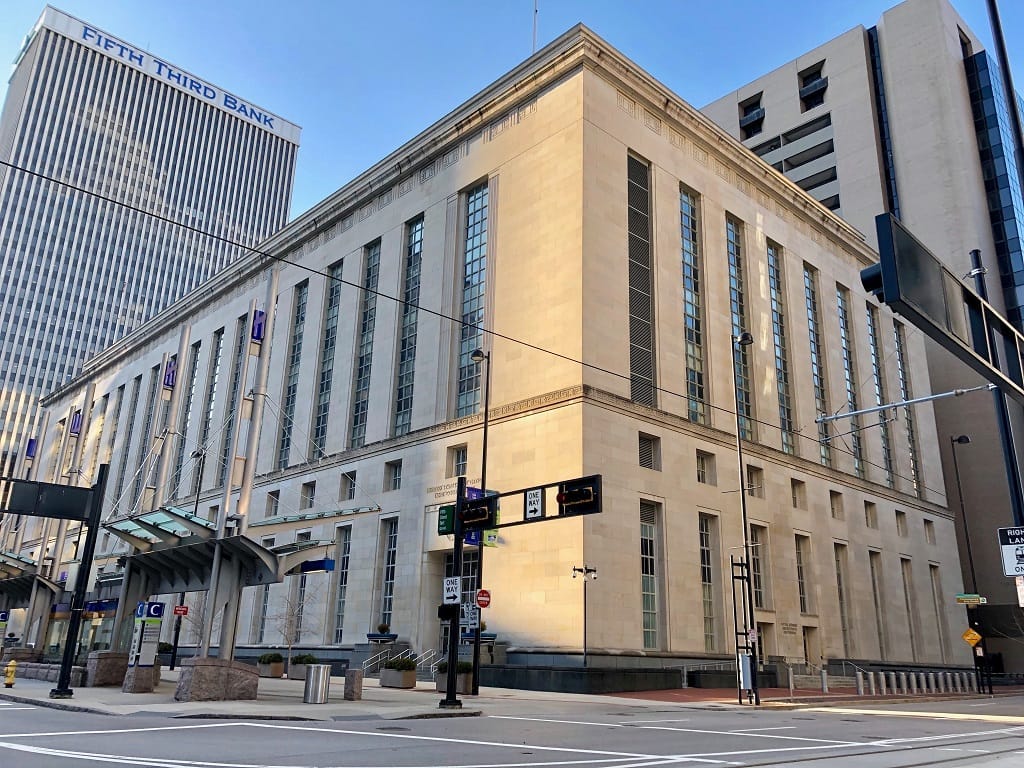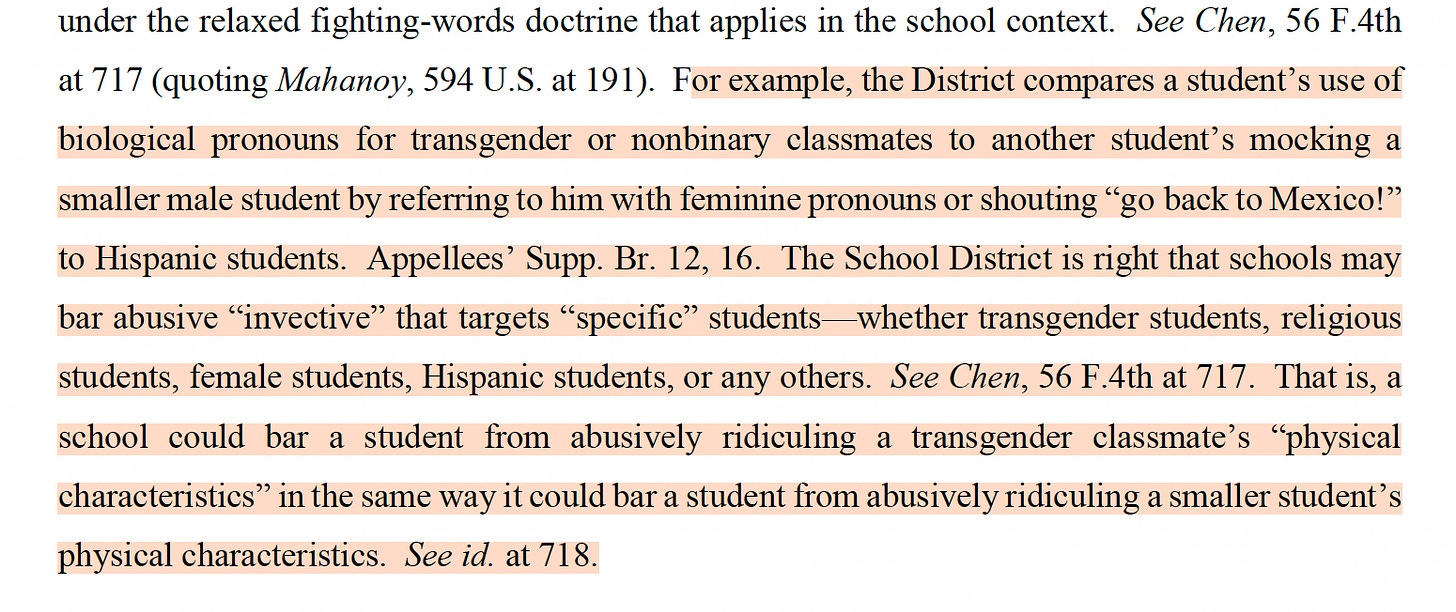6th Circuit Rules Cis Students May Bully Trans Students By Repeatedly Misgendering Them
The Circuit also seemed to suggest that trans students could not misgender their bullies in return.
In a devastating ruling for transgender students across Kentucky, Michigan, Ohio, and Tennessee, the 6th Circuit Court of Appeals has held that cisgender students may repeatedly and intentionally misgender their transgender peers in the classroom, striking down an Ohio school board’s policy that prohibited the practice. The court drew no distinction between accidental misuse and targeted, ongoing harassment, concluding that even that conduct does not “materially and substantially” disrupt school activities—the threshold that would allow schools to intervene. In doing so, the panel elevated what it called “biological pronouns,” a term with no prior grounding in U.S. caselaw. The decision also seems to bar transgender students from misgendering their cisgender bullies in return. The result is a newly recognized right to bully transgender students in the 6th Circuit, achieved by reframing their identities as a “political topic” rather than acknowledging the clear and harmful disruption this conduct causes.
The case centers on Parents Defending Education, a far-right organization that has made opposition to transgender rights, critical race theory, and inclusive curricula central to its mission. In 2023, the group contacted the Olentangy Local School District to ask whether students could intentionally misgender their transgender peers, claiming the practice was part of their religious beliefs. The district responded that such conduct would constitute harassment and abuse, but offered accommodations that would allow the student to avoid speaking about their transgender classmates altogether. The parents rejected those accommodations and instead filed suit months later.
After losing in district court—where the judge found that “intentional misgendering has the effect of creating a hostile environment for transgender students on account of their gender identity and therefore causes substantial disruption”—the group appealed, only to lose again before a three-judge panel. They then sought an en banc review, which brings the case before the full 6th Circuit rather than the customary panel. The full court, two-thirds of which was appointed by Republicans, reversed the earlier decisions and held that using what it called “biological pronouns” does not amount to “substantial disruption,” even when the misuse is deliberate and repeated.
The majority argued not only that intentional and repeated misgendering does not substantially disrupt transgender students’ classroom experience, but that prohibiting such behavior would actually harm the cisgender students engaged in it. “So forcing these individuals to choose between either violating their scientific and religious beliefs or facing punishment for adhering to those beliefs can cause ‘mental and psychological harm’ to them,” the decision reads. This is in spite of copious evidence submitted in court detailing the harmful effects of bullying and misgendering transgender students, which range from depression and anxiety to suicidal ideation.
The majority also carved out a special status for what it termed “biological pronouns,” a phrase it never meaningfully defines. At one point, the judges confronted the obvious implication of their logic: that if intentional misgendering is protected, a student could just as easily target a cisgender peer—for example, calling a smaller or weaker cisgender boy “she” and using she/her pronouns to mock him. To wave this away, the court claimed that such conduct would amount to “ridiculing the physical characteristics” of a cisgender student, while declining to extend the same protection to transgender students subjected to identical behavior. Under this reasoning, a cisgender student may intentionally and repeatedly misgender a transgender classmate, but the transgender student would be barred from responding in kind.
In its conclusion, the majority wrote that it was compelled to rule in favor of the students engaging in intentional misgendering because, in its view, “The use of ‘he’ or ‘she’ will lead most to believe that the identified person is male or female,” characterizing the district’s policy against repeated misgendering as a form of “thought control.”
The ruling means that public schools across the 6th Circuit—Kentucky, Michigan, Ohio, and Tennessee—may now see their policies protecting transgender students from intentional, repeated misgendering struck down under the same logic. The consequences for trans students could be severe, effectively creating a state-sanctioned carveout that grants peers a newly protected right to bully them. It is also yet another blow from the 6th Circuit, which has increasingly become a central battleground in the legal fight over transgender rights, including its Skrmetti decision that greenlit bans on trans youth medical care. And this ruling arrives amid a cascade of court setbacks for queer and trans people this week alone, including a drag ban decision from the 5th Circuit and a national Supreme Court ruling allowing the Trump administration to impose new restrictions on transgender passports.







I'm tired of conservatives being evil.
The law, in its wisdom, prohibits both the rich and poor from sleeping under bridges.
This bastardized "equal protection" that erases trans identity needs to be relegated to the dustbin of history.